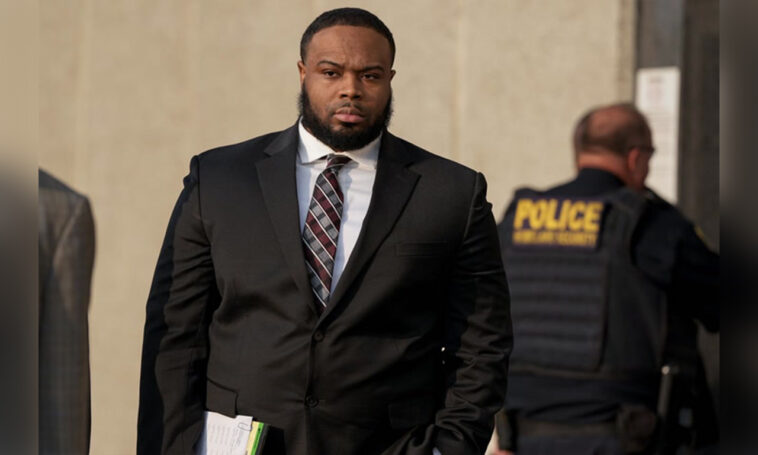A former Memphis police officer provided harrowing testimony on Tuesday regarding the fatal beating of Tyre Nichols, recounting how he punched the “helpless” man at least five times while two colleagues restrained him and urged the assault. Emmitt Martin III, the officer in question, was present during the traffic stop on January 7, 2023, when Nichols was forcibly removed from his vehicle. Nichols, in an attempt to evade capture, fled the scene, prompting officers Tadarrius Bean and Justin Smith to chase him down.
When Martin finally caught up with them, he witnessed his colleagues assaulting Nichols. “They were assaulting him,” Martin stated unequivocally during his testimony. The officers involved—Bean, Smith, and Demetrius Haley—have pleaded not guilty to multiple charges, including depriving Nichols of his civil rights through excessive force, failing to intervene, and obstructing justice through witness tampering.
The brutality of the encounter has sparked widespread outrage, especially after the release of police video footage depicting the incident. Following Nichols’ death, which occurred three days later, the four officers, alongside Desmond Mills Jr., were terminated from their positions. Martin and Mills have since accepted plea deals, agreeing to testify against their former colleagues as part of the ongoing legal proceedings.
As jurors watched video clips of the incident, Nichols’ mother, RowVaughn Wells, and stepfather, Rodney Wells, were present outside the courtroom. RowVaughn has never viewed the video, which adds a layer of emotional tension to the proceedings. Inside, Nichols’ brother watched the footage unfold.
Martin’s testimony painted a disturbing picture of the mindset of the officers that night. He expressed anger at Nichols for fleeing, revealing that he felt the force used was justified. “I figured that’s what he should get,” he admitted, a chilling reflection of the emotions driving their actions. When questioned by prosecutor Kathryn Gilbert about whether officers are permitted to use force out of anger,Martin acknowledged his plea deal and he said he hoped the judge would show leniency at sentencing.
“I can’t sit here and live with a lie. The truth needs to come out,” Martin told Gilbert. “It was eating me up inside.”
The officers were part of the Scorpion Unit, a specialized team tasked with combating drugs, illegal firearms, and violent crime. In the wake of Nichols’ death, the unit was disbanded due to the public outcry and scrutiny surrounding their methods. During his testimony, Martin confessed to discarding his body camera, stating he didn’t want to document the reality of the assault on Nichols. He described how he kicked Nichols while another officer struck him with a baton. Martin recounted how he punched Nichols at least five times, with his colleagues holding Nichols’ arms and encouraging him to continue the assault, commanding him to comply. “He was helpless,” Martin said, emphasizing the vulnerability of Nichols during the brutal encounter.
Despite the severity of the situation, Martin admitted to his supervisor, Lt. Dewayne Smith, that Nichols was under the influence of drugs, without any evidence to support that claim. He falsely reported that Nichols had driven into oncoming traffic and had physically threatened them during the stop. “I exaggerated his actions to justify mine,” Martin stated, revealing the deep-rooted culture of deception within the unit.
Under cross-examination by Bean’s attorney, John Keith Perry, Martin’s mental state came into question. He revealed that he had sustained injuries in a prior incident and had only returned to the Scorpion Unit four days before the Nichols arrest. Martin also disclosed that he had been diagnosed with post-traumatic stress disorder, experiencing symptoms like insomnia, paranoia, irritability, and anger issues. Perry attempted to highlight discrepancies between Martin’s previous statements and his current testimony, suggesting that his choice of words had been influenced by legal counsel.
As the case continues to unfold, the implications of Martin’s testimony raise critical questions about police accountability and the systemic issues within law enforcement that allow such abuses of power to occur. Nichols, a father to a seven-year-old boy, tragically lost his life due to the excessive force applied during the encounter, a fact that continues to resonate deeply within the community and beyond. The fallout from this case not only seeks justice for Nichols but also aims to instigate broader reforms in policing practices to prevent future tragedies.






Join the Community and Be a Part of the Conversation
You must be logged in or registered to post a comment.